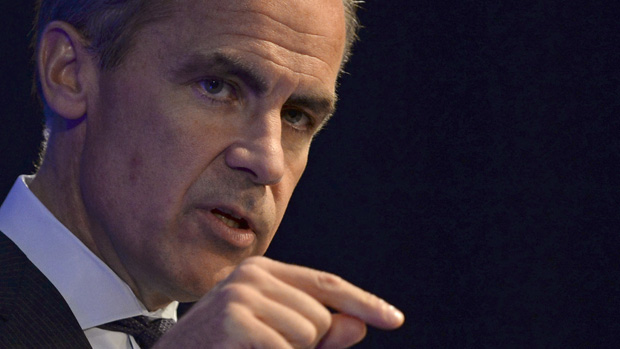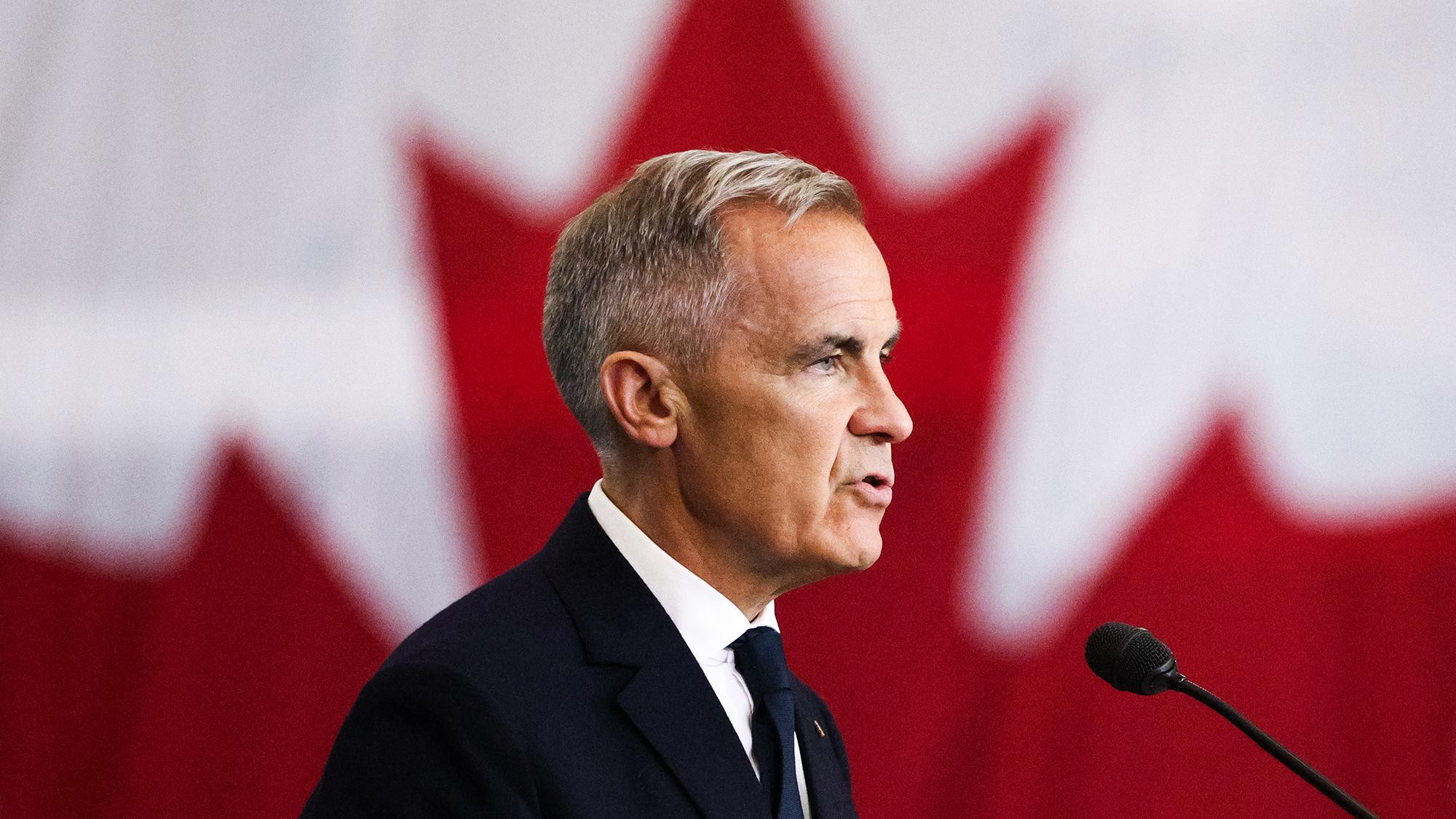Mark Carney slams Eurozone austerity days after Syriza win
Bank of England governor's attack seen as call for Berlin to accept Greek demands to relax austerity

A free daily email with the biggest news stories of the day – and the best features from TheWeek.com
You are now subscribed
Your newsletter sign-up was successful
Bank of England governor Mark Carney has launched a withering attack on the Eurozone's pursuit of austerity, just days after the anti-austerity Syriza party surged to victory in the Greek election.
He warned that the Eurozone faced "another lost decade" unless member states pooled their resources and progressed towards a fiscal union.
Although he mentioned no countries by name, his comments were described by The Times as a "barely coded call" for Berlin to accept Greek demands to relax austerity.
The Week
Escape your echo chamber. Get the facts behind the news, plus analysis from multiple perspectives.

Sign up for The Week's Free Newsletters
From our morning news briefing to a weekly Good News Newsletter, get the best of The Week delivered directly to your inbox.
From our morning news briefing to a weekly Good News Newsletter, get the best of The Week delivered directly to your inbox.
"It is difficult to avoid the conclusion that, if the eurozone were a country, fiscal policy would be substantially more supportive," the governor told an audience in Dublin. "However, it is tighter than in the UK, even though Europe still lacks other effective risk-sharing mechanisms and is relatively inflexible."
Carney warned that the European monetary union "will not be complete until it builds mechanisms to share fiscal sovereignty".
His intervention will "infuriate" German Chancellor Angela Merkel, who is battling to keep Greece in the euro without provoking demands for concessions from other struggling nations, says the Times.
BBC economics editor Robert Peston says Carney is in effect saying that Germany ought to do more to support the likes of Italy, Spain and France.
A free daily email with the biggest news stories of the day – and the best features from TheWeek.com
While there is "nothing new" in his argument, the timing of the intervention is "striking", says Peston. It comes days after the European Central Bank announced a massive programme of quantitative easing to head off deflation, and as eurozone countries led by Germany "baulk at providing further financial help to Greece", he says.
Calls for greater federalism and risk-sharing have led to a rise in nationalist parties, such as the True Finns in Finland and the National Front in France.
But as Greece's new government tries to renegotiate its debts, Carney said that others in the euro area are also "sinking deeper" into debt.
"Europe's leaders do not currently foresee fiscal union as part of monetary union," he says. "Such timidity has costs."
-
 Health insurance: Premiums soar as ACA subsidies end
Health insurance: Premiums soar as ACA subsidies endFeature 1.4 million people have dropped coverage
-
 Anthropic: AI triggers the ‘SaaSpocalypse’
Anthropic: AI triggers the ‘SaaSpocalypse’Feature A grim reaper for software services?
-
 NIH director Bhattacharya tapped as acting CDC head
NIH director Bhattacharya tapped as acting CDC headSpeed Read Jay Bhattacharya, a critic of the CDC’s Covid-19 response, will now lead the Centers for Disease Control and Prevention
-
 Local elections 2026: where are they and who is expected to win?
Local elections 2026: where are they and who is expected to win?The Explainer Labour is braced for heavy losses and U-turn on postponing some council elections hasn’t helped the party’s prospects
-
 How corrupt is the UK?
How corrupt is the UK?The Explainer Decline in standards ‘risks becoming a defining feature of our political culture’ as Britain falls to lowest ever score on global index
-
 Does standing up to Trump help world leaders at home?
Does standing up to Trump help world leaders at home?Today’s Big Question Mark Carney’s approval ratings have ‘soared to new highs’ following his Davos speech but other world leaders may not benefit in the same way
-
 The high street: Britain’s next political battleground?
The high street: Britain’s next political battleground?In the Spotlight Mass closure of shops and influx of organised crime are fuelling voter anger, and offer an opening for Reform UK
-
 Is a Reform-Tory pact becoming more likely?
Is a Reform-Tory pact becoming more likely?Today’s Big Question Nigel Farage’s party is ahead in the polls but still falls well short of a Commons majority, while Conservatives are still losing MPs to Reform
-
 Taking the low road: why the SNP is still standing strong
Taking the low road: why the SNP is still standing strongTalking Point Party is on track for a fifth consecutive victory in May’s Holyrood election, despite controversies and plummeting support
-
 What difference will the 'historic' UK-Germany treaty make?
What difference will the 'historic' UK-Germany treaty make?Today's Big Question Europe's two biggest economies sign first treaty since WWII, underscoring 'triangle alliance' with France amid growing Russian threat and US distance
-
 Trump set to hit Canada with 35% tariffs
Trump set to hit Canada with 35% tariffsSpeed Read The president accused Canadian Prime Minister Mark Carney of failing to stop the cross-border flow of fentanyl